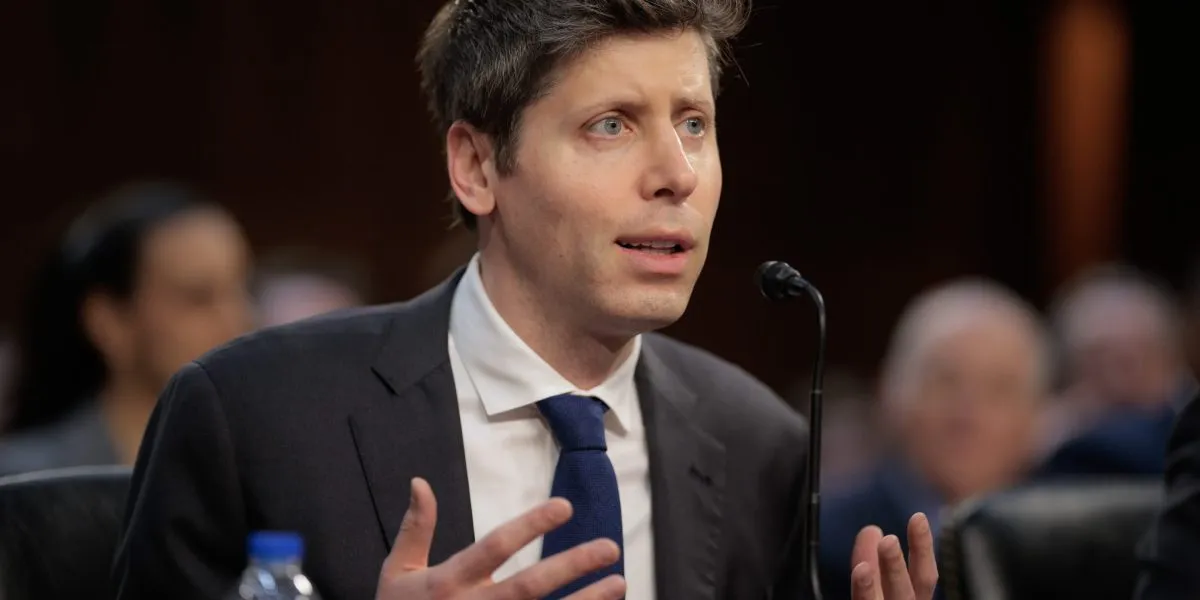
In a recent discussion, OpenAI CEO Sam Altman, a prominent figure in the tech industry and a major driver of the AI revolution, openly acknowledged a pressing issue: AI technology is poised to eliminate certain jobs entirely. Despite this, Altman believes that the next decade could be the most thrilling time in history to embark on a new career, particularly for those with aspirations to work in space exploration.
Altman emphasized that future professionals could enjoy lucrative salaries while engaging in work that is far more exciting than traditional roles. He stated, “In 2035, that graduating college student, if they still go to college at all, could very well be leaving on a mission to explore the solar system on a spaceship in some completely new, exciting, super well-paid, super interesting job.” His comments were made during an interview with video journalist Cleo Abram, highlighting the potential for a transformative career landscape.
While the expansion of space exploration remains uncertain, especially with NASA's ambitious aim of reaching Mars by the 2030s, the demand for aerospace engineers is on the rise. According to the U.S. Bureau of Labor Statistics, this sector is growing faster than the national average for all occupations, with aerospace engineers commanding an impressive annual salary of over $130,000. This trend reflects the increasing interest and investment in space technologies.
Other tech leaders share Altman's optimistic vision for the future of work, albeit with a more terrestrial focus. For instance, Bill Gates, the co-founder of Microsoft, suggested earlier this year that AI could significantly shorten the workweek, as many tasks may no longer require human intervention. Gates pondered, “What will jobs be like? Should we just work like two or three days a week?” during an appearance on The Tonight Show with Jimmy Fallon.
Similarly, Nvidia CEO Jensen Huang acknowledged that AI has already enhanced the capabilities of his workforce, providing them with what he described as “superhuman” skills. He noted that as AI continues to evolve, the proficiency of workers will only grow. “I’m surrounded by superhuman people and super intelligence... Yet it never one day caused me to think, all of a sudden, I’m no longer necessary,” Huang remarked during a conversation with Cleo Abram on her Huge Conversations podcast series.
Despite the uncertainties surrounding AI's trajectory, Altman expressed envy for the opportunities available to Gen Z professionals starting their careers today. “If I were 22 right now and graduating college, I would feel like the luckiest kid in all of history,” he stated, indicating his belief that this generation will benefit from groundbreaking advancements in technology and job opportunities.
Following the launch of OpenAI's latest model, GPT-5, Altman remarked that individuals now have access to technology that can perform tasks previously requiring a team of PhD-level experts. He suggested that it is now feasible for a single entrepreneur to establish a company worth over a billion dollars, provided they have a strong idea and proficiency in using AI tools. “It is probably possible now to start a company that is a one-person company that will go on to be worth more than a billion dollars,” he claimed, emphasizing the extraordinary potential of AI in entrepreneurship.
In a bold prediction, billionaire Mark Cuban stated that AI might enable individuals like Elon Musk to face competition for the title of the world’s richest person, underscoring the transformative potential of AI in shaping not just careers but entire industries.